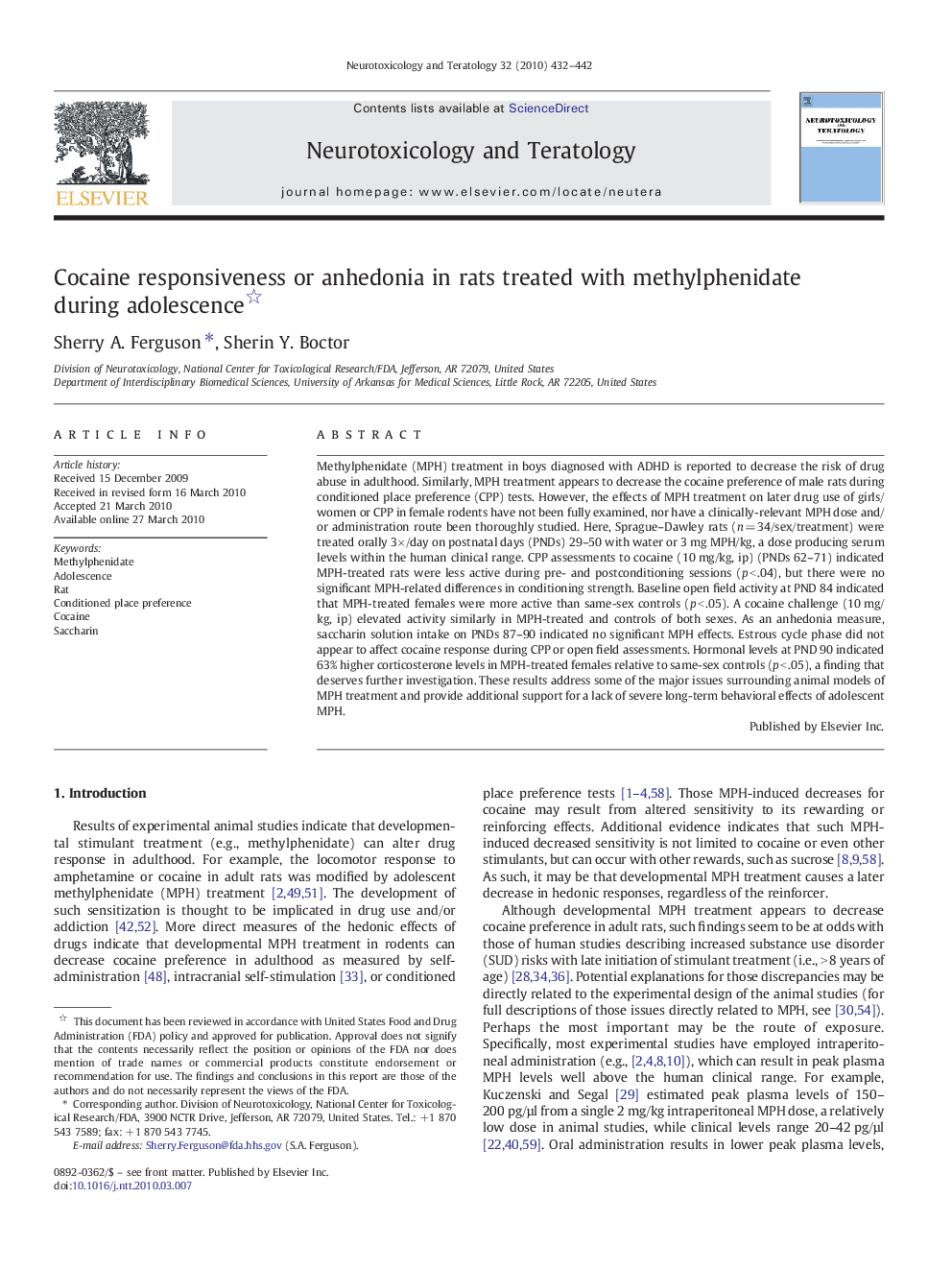| Article ID | Journal | Published Year | Pages | File Type |
|---|---|---|---|---|
| 2591453 | Neurotoxicology and Teratology | 2010 | 11 Pages |
Methylphenidate (MPH) treatment in boys diagnosed with ADHD is reported to decrease the risk of drug abuse in adulthood. Similarly, MPH treatment appears to decrease the cocaine preference of male rats during conditioned place preference (CPP) tests. However, the effects of MPH treatment on later drug use of girls/women or CPP in female rodents have not been fully examined, nor have a clinically-relevant MPH dose and/or administration route been thoroughly studied. Here, Sprague–Dawley rats (n = 34/sex/treatment) were treated orally 3×/day on postnatal days (PNDs) 29–50 with water or 3 mg MPH/kg, a dose producing serum levels within the human clinical range. CPP assessments to cocaine (10 mg/kg, ip) (PNDs 62–71) indicated MPH-treated rats were less active during pre- and postconditioning sessions (p < .04), but there were no significant MPH-related differences in conditioning strength. Baseline open field activity at PND 84 indicated that MPH-treated females were more active than same-sex controls (p < .05). A cocaine challenge (10 mg/kg, ip) elevated activity similarly in MPH-treated and controls of both sexes. As an anhedonia measure, saccharin solution intake on PNDs 87–90 indicated no significant MPH effects. Estrous cycle phase did not appear to affect cocaine response during CPP or open field assessments. Hormonal levels at PND 90 indicated 63% higher corticosterone levels in MPH-treated females relative to same-sex controls (p < .05), a finding that deserves further investigation. These results address some of the major issues surrounding animal models of MPH treatment and provide additional support for a lack of severe long-term behavioral effects of adolescent MPH.
